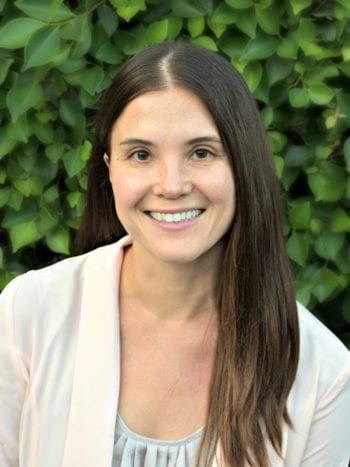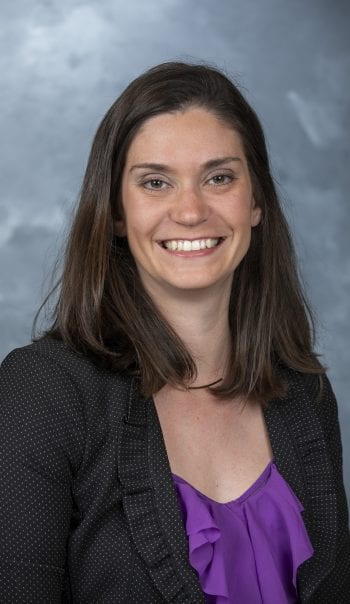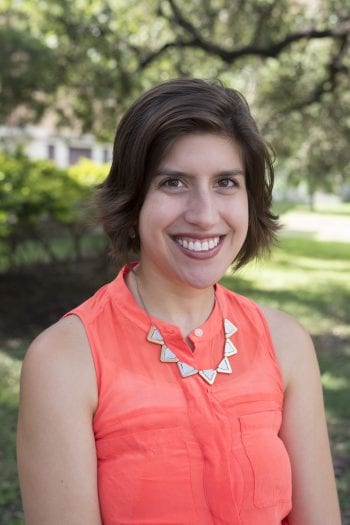Current
Aaron Neiman, PhD

Aaron Neiman is a medical anthropologist studying the changing ways we seek, talk about, and conceive of, therapy. In particular, he is interested in how new ‘low-intensity’ electronic mental health programs, such as chatbots and self-guided CBT apps, frame psychotherapy less like a medical treatment and more like a lifestyle adjustment. As an ethnographer, he conducts participant-observation and interviews with the people who make, develop, test, use, and fund these digital programs. His research asks when someone is ‘too sick’ to use these apps and websites, and why the organizations promoting them often hand-waive this tricky question.
Dr. Neiman earned his PhD in Anthropology from Stanford University in 2023, where he completed an earlier NIH T32 training fellowship at the Stanford Center for Biomedical Ethics. His dissertation, supported by the National Science Foundation, the Wenner-Gren Foundation, and the Andrew W. Mellon Foundation, was titled Therapy Without Therapists: An Ethnographic Study of E-Mental Health in Australia. It found that when such e-mental health programs receive government or corporate funding, they may systematically silence questions about the economic or political causes of mental illness.
His current project, Psychic Retreats: The New Politics of Mental Health in the Global North expands on this work by considering how, in a time of escalating social and ecological crises, governments of wealthy nations turn to inexpensive mental health programs as a ‘band-aid’ measure.
Dr. Neiman enjoys writing for both academic journals and popular audiences. Prior to joining the Center for Mental Health Services Researchers, he taught as a lecturer in Department of Anthropology in the School of Arts and Sciences. He continues to meet with and advise students informally.
Ana Chatham, PhD, LCSW

Ana Chatham’s research focuses on improving the mental health and wellbeing of Latinas/os through culturally informed prevention, intervention, and structural changes. Her research is grounded in her 10 years of practice experience serving clients in micro, mezzo, and macro capacities in fields including family preservation, domestic violence, and mental health.
Ana earned her PhD from the Steve Hicks School of Social Work at The University of Texas at Austin in 2024. Funded by the Teresa Losano Long Institute of Latin American Studies, her dissertation utilized photovoice to examine what adolescents in rural Mexico perceive and experience as affecting their mental health and wellbeing. Her findings highlighted the importance of context, including environment and culture, to adolescents’ understanding of and priorities for their mental health and wellbeing. Ana’s current focus is on researching the development and implementation of mental health supports in contexts where formal services are often inexistent and mental health remains highly stigmatized.
Completed Training
Dani Adams, PhD, MSW

Dani Adams research aims to improve the availability, accessibility, and quality of mental health services delivered in underserved neighborhoods with the overall goal of improving health equity for vulnerable children, adolescents, and families. She takes an applied, policy-relevant, and community-engaged approach to her research, collaborating with relevant stakeholders from the design of the study to the dissemination of findings. Her work is motivated by her previous clinical experiences as a social worker in a Chicago Public High School and as a community mental health therapist. She earned her PhD and Master’s in Social Work from the Crown Family School of Social Work, Policy, and Practice at the University of Chicago.
Her dissertation, funded by the Doctoral Fellows Award from the Society for Social Work Research and the Horowitz Foundation for Social Policy, used a mixed methods mystery shopper design to assess real-world access to trauma-informed outpatient mental health services for adolescents. She found that that lack of agency capacity and administrative burdens were the primary obstacles to access, that less than 20% of pseudo mothers could schedule an appointment, and that evidence-based trauma-informed care was rarely available.
While at WashU, her work has been funded by the Center for the Study of Race, Ethnicity, and Equity and the Center for Dissemination and Implementation. Her current projects involve developing partnerships with safety-net health agencies to design and test organizational-level interventions to improve access to high-quality mental health services for youth and using geospatial tools to map the accessibility of community-based mental health services. She co-leads the Psychedlic-Assisted Therapies Learning Community (PAT-LC) with Dr. Leopoldo Cabassa, which aims to support research on PAT as well as training the next generation of PAT practitioners.
Gretchen Buchanan, PhD, LMFT, LADC

Gretchen Buchanan studies implementation of social-emotional and behavioral health services within the primary care medical setting. She is also interested in examining the multi-level nature of implementation mechanisms and mapping implementation strategies for intervention scaling up and out. She earned her PhD in Family Social Science at the University of Minnesota and her dissertation on integrated behavioral healthcare was completed in collaboration with a regional collaborative healthcare quality improvement organization.
Gretchen has a background as a marriage and family therapist and alcohol and drug counselor, and has worked with adolescents, families, and adults in a variety of settings. Through her clinical work she developed a passion for addressing health disparities and increasing access to high-quality, non-stigmatizing emotional and behavioral supports for parents and families. She is a strong advocate for prevention and screening services and wants her research to have an impact on helping kids and their families get and stay emotionally healthy, particularly with addressing unrecognized and untreated parental mental health concerns. Gretchen’s research focuses on increasing implementation of programs and services that address emotional and behavioral health locally and across the country.
Michael Park, PhD, AM, MSCP

Michael Park studies the social determinants of mental health and disparities in mental health service utilization. Specifically, his dissertation examines how Asian American youth internalize racial/ethnic stereotypes as well as the impact of internalization on the mental health of Asian American youth, and he plans to investigate how the patterns of racial stereotypes influence the mental health service utilization.
His interest in examining racial/ethnic disparities in mental health care stems from his desire to improve mental health outcomes among racial/ethnic minority immigrant populations. Through his experiences working with North Korean refugees, he witnessed the critical impact of social conditions on the mental health of stateless North Korean families as well as on their access to mental health services. His continued field experience in Asian immigrant-serving agencies in Chicago solidified his commitment to studying mechanisms underlying racial/ethnic disparities in mental health service utilization and quality of care.
Michael received his PhD from the School of Social Service Administration at the University of Chicago in 2020. He applies an interdisciplinary lens to his research, holding masters’ degrees in social work and biostatistics from the University of Chicago, and having completed advanced interdisciplinary coursework in public health, human development, and social inequality.
Rebecca Lengnick-Hall, PhD, MSSW, MPAff

Rebecca Lengnick-Hall is an organizational social work researcher who wants to promote and represent the social work perspective in the implementation science and management fields. She received her PhD from the University of Southern California and has master’s level training in social work and public affairs. Her respect for the social work profession drives her research questions, and her policy training pushes her to make her research practical, relevant, and immediately usable. Social workers are often tasked with implementing evidence-based practices (EBPs), yet they must do so under challenging and strained working conditions. Rebecca wants to create organizational environments that support EBP implementation and set clinicians up to succeed.
She is specifically interested in how organizations must adapt—in both planned and unplanned ways—when a new intervention is introduced. While the dominant perspective is that organizations are the context for implementation, Rebecca believes that organizations are dynamic implementation actors.
Her dissertation, funded by a two-year Ruth L. Kirschstein National Research Service Award from the National Institute of Mental Health, qualitatively explored how 17 organizations in eight service systems adapted over the course of SafeCare implementation. Rebecca now wants to understand how practitioners make decisions about adaptation as an EBP is adopted, implemented and sustained.
Kimberly B. Roth, PhD, MHS

Kimberly Roth grew up in the Baltimore area and lived in Baltimore City for 13 years. Currently, her research focuses on the epidemiology of mental disorders in Latinx populations, both in the US and globally. Kim received a Masters of Health Science (MHS) from the Johns Hopkins Bloomberg School of Public Health (JHSPH) in 2009 where her thesis explored the association between suicidality, depression and antisocial behavior among adults in Mexico. She earned her PhD from the Department of Mental Health at JHSPH in 2018. Her dissertation used a latent variable framework to explore the relationship between psychiatric disorders and acculturative experiences among US-residing Latinxs. Kim has participated in the implementation and analysis of several longitudinal cohort studies involving HIV research, the epidemiology of mental disorders, and a randomized field trial of the Good Behavior Game in urban elementary school students.
Hannah Szlyk, PhD, LCSW

Hannah Szlyk, PhD, LCSW, studies suicidality among underserved and minority youth, including adolescents of immigrant families. Hannah is specifically interested in how interventions can be better implemented outside of hospitals and clinics and can serve the needs of youth who are often marginalized within our society. She is also interested in how data science and technology can be used to better understand and prevent youth suicidality. Hannah’s research includes mixed methods and is informed by social justice and critical frameworks. Hannah completed her Bachelors of Arts in international studies and foreign languages, Spanish and Russian, at Kenyon College in 2009. Hannah then pursued a Masters of Science in Social Work at Columbia University, where she specialized in clinical social work, mental health, and trauma-focused interventions. Upon graduation in 2011, Hannah began a two-year fellowship in psychodynamic and clinical social work at The Menninger Clinic in Houston, Texas. There, Hannah also re-searched, wrote, and presented on suicidality, eating disorders, and emotion regulation. She recently completed her PhD at the Steve Hicks School of Social Work at the University of Texas at Austin in May 2018.
